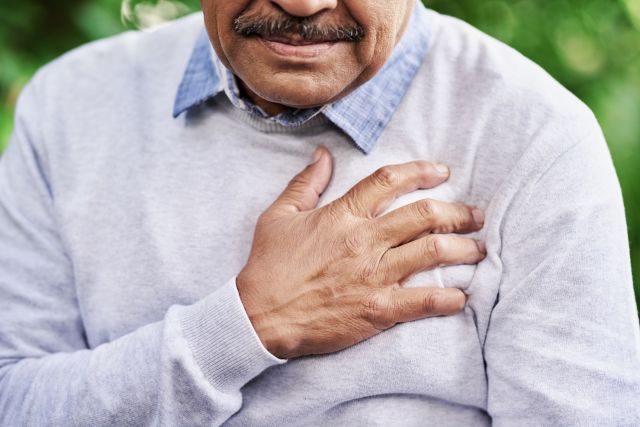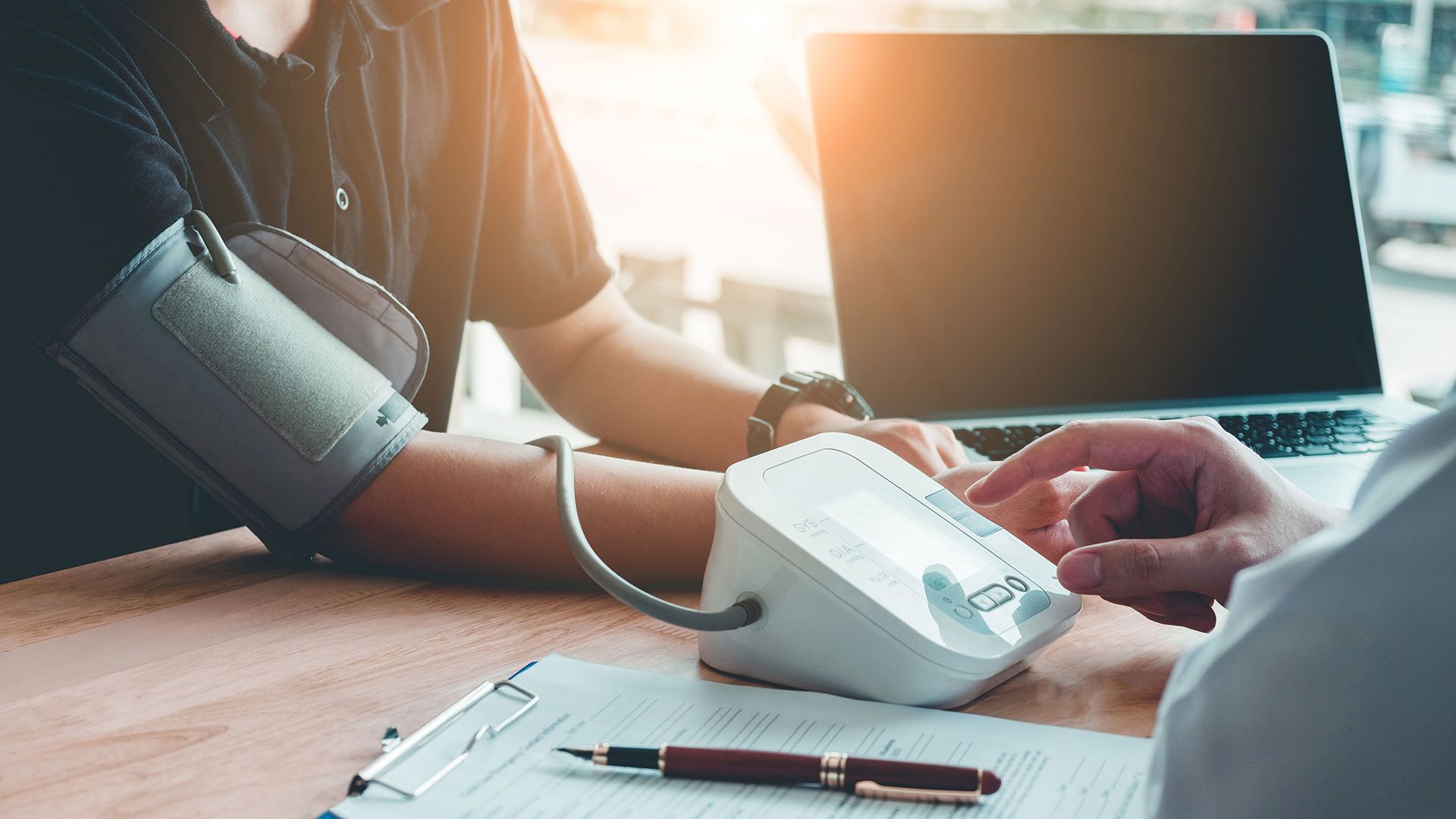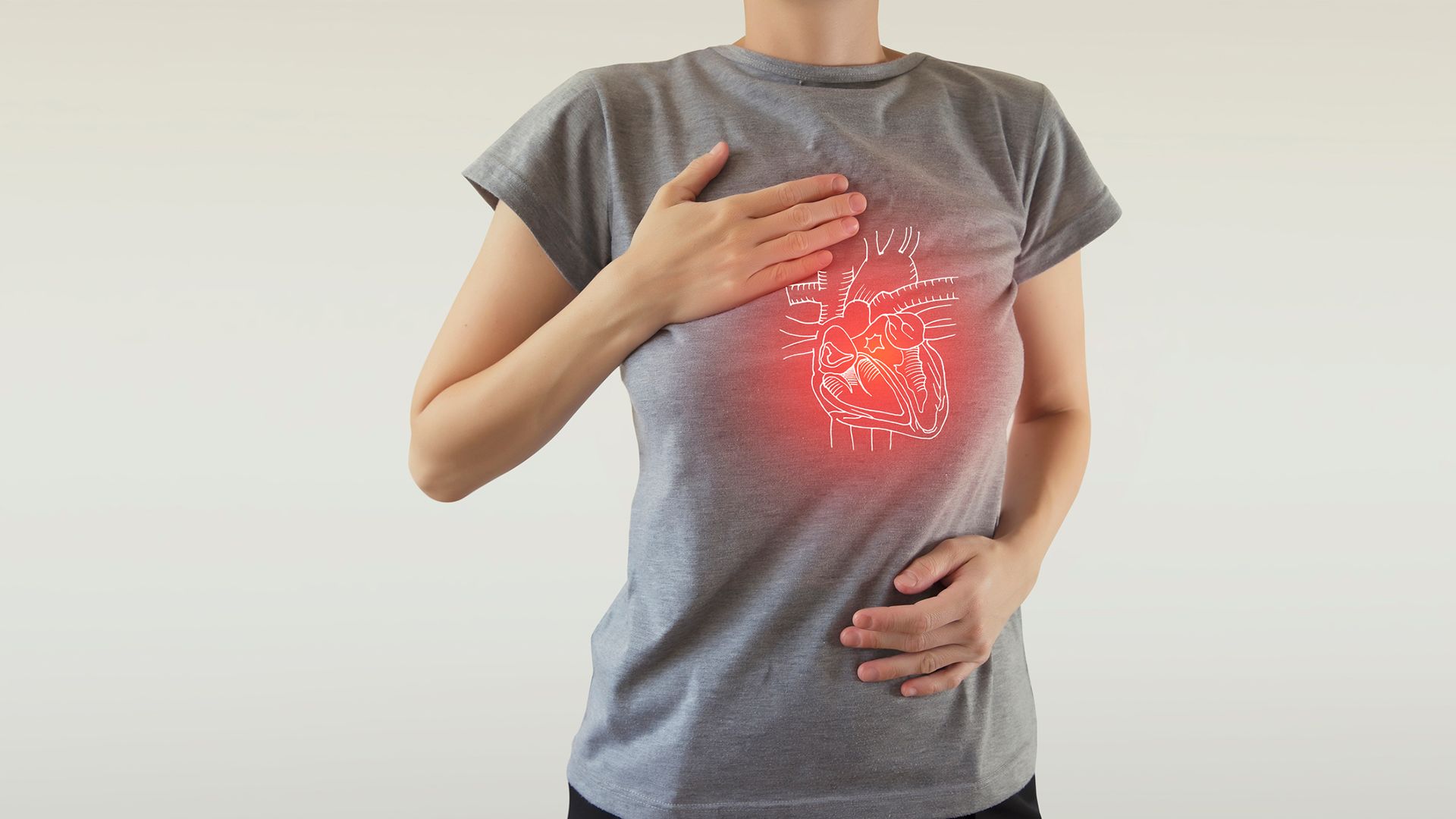Sometimes chest pain is just chest pain. Sometimes it’s only a muscle strain, heartburn or bronchitis. “More often than not there are benign reasons,” says Jeffrey Steinhoff, MD, a Cardiologist and Clinical Lipidologist at Largo Medical Center in Largo, Florida. "But you should be evaluated by a healthcare professional if you’re worried."
Still, chest pain can signal a serious condition, heart-related or otherwise. Here’s when you should call a healthcare provider if you’re having chest pain.
Heart trouble
When people hear the term “chest pain,” one of the first conditions that springs to mind is a heart attack, and with good reason; chest pain is the most common symptom of a heart attack in both men and women. It usually feels like pressure, and can often radiate to the arm, neck or jaw. It’s not the only sign though, and women especially are prone to experiencing other symptoms, like fatigue, nausea and shortness of breath.
Chest pain can also signal other heart trouble. “To a cardiologist, ‘angina’ is a word to describe symptoms related to the heart,” says Steinhoff. Angina is frequently caused by coronary heart disease, where plaque builds up in the arteries and slows down blood flow. In women, it can be seen with large vessel narrowing or with microvascular disease. “Angina feels differently to different people,” Dr. Steinhoff says. “The most classic diagnosis is chest pressure, a heaviness that happens with exertion and goes away with rest.”
Another heart-related reason for chest discomfort could be certain types of heart failure. No, that doesn’t mean your heart stops beating—that's cardiac arrest—but it does mean your heart cannot deliver enough oxygen-rich blood to meet the body’s needs. The most common symptoms include shortness of breath, coughing or wheezing, fluid backup—especially in the lungs or legs—and fatigue, but chest pain is a possible symptom, too.
Lung problems
What else is in your chest besides your heart? That’s right, the lungs—and one of the most serious causes of chest pain is a pulmonary embolism. That’s when a blood clot lodges itself in and blocks blood flow to the lungs. Pulmonary embolisms are often a complication of deep vein thrombosis, a blood clot that starts most often in the legs. Other symptoms of pulmonary embolism include shortness of breath and other breathing problems, as well as coughing—with or without blood.
Pneumonia is a common illness, but it can be severe. It’s the number one cause of hospitalization for US adults, other than giving birth. About one million American adults are hospitalized with pneumonia each year, and about 50,000 die. Chest pain is often a symptom, especially when you breathe or cough. Other pneumonia symptoms include fever, chills, cough and shortness of breath.
While it’s usually a complication to a chest injury, sometimes a collapsed lung can happen for no reason. Also known as pneumothorax, a collapsed lung occurs when air escapes from the lung and gets trapped between the lung and the ribcage. Pain in the chest, especially when breathing or coughing, is one of the most common symptoms. Others include fatigue, lightheadedness, a rapid heart rate and a bluish tint to the skin. Chronic conditions such as asthma, cystic fibrosis and chronic obstructive pulmonary disease can also increase the risk of a collapsed lung.
When to worry, when to relax
As a cardiologist, Dr. Steinhoff is most worried when someone complains of chest pain during exertion, as well as feeling lightheaded. “Assuming that someone is not profoundly anemic, I’d be concerned that a significant portion of the heart was not getting enough blood flow,” he says. “Another thing that would be worrying is if the chest pain is coming on with less and less activity, or at rest. I’d be concerned about a coronary artery blockage that’s progressing.”
As for when you might not need to be concerned, chest pain can be caused by a muscle strain, costochondritis (inflammation of the cartilage around the ribs), esophageal spasms, acid reflux, or bronchitis, says Dr. Steinhoff. However, it’s better to be safe than sorry. If you’re worried about your chest pain, see a healthcare provider or call 9-1-1.





